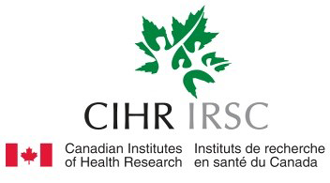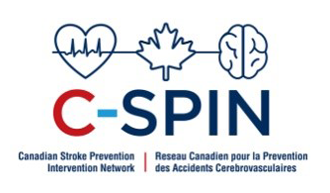Patients with atrial fibrillation (AF) have an increased risk of stroke. This risk can be reduced using treatment with oral anticoagulants. To date it is unknown if elimination or substantial reduction of AF with an ablation procedure also reduces the risk of stroke associated with AF. If it does reduce the stroke risk, then patients who have a successful ablation may not need to continue on life-long oral anticoagulant therapy. However, this benefit has to be weighed against the risk of ongoing stroke despite significant AF reduction.
The OCEAN trial is a prospective, open-label randomized controlled phase 4 trial that will compare medical approaches for stroke prevention in people who have AF but have undergone a successful ablation to eliminate or substantially reduce the arrhythmia. This trial will compare a strategy of oral anticoagulant therapy with rivaroxaban to an aspirin per day after successful AF ablation. The primary outcome will be a composite of stroke, systemic embolism and silent cerebral infarction as defined by cerebral magnetic resonance imaging.
Over 1500 patients with a moderate risk of stroke will be enrolled in seven countries.
Atrial Fibrillation and associated stroke risk
Atrial fibrillation (AF) is the most common arrhythmia affecting about 2% of the population with at least 30 million people worldwide being diagnosed with AF. AF is associated with increased morbidity and mortality, linked to an increased risk of stroke and systemic embolism. Patients with AF have a five-fold increased risk of stroke compared to matched individuals without AF. Strokes associated with AF are more severe compared to other etiologies of stroke, with 60% of them causing major disability and 20% causing death.
Most studies assessing risk of stroke in AF have focused on clinically apparent stroke. However, with enhanced magnetic resonance imaging (MRI) techniques, the importance of silent cerebral infarction (or covert stroke) secondary to AF is now being recognized. Such changes may be existent in 50-90% of patients with AF, even amongst those thought to be at low risk of stroke. It is estimated that the incidence of silent infarction may be 2-7 times the incidence of clinically manifest strokes in patients with chronic AF. Although these infarctions are not immediately symptomatic, long-term studies suggest that such changes are related to future clinical stroke, cognitive decline, dementia, and increased mortality. Thus, silent cerebral infarction on MRI is an area of emerging importance.
Relationship between AF burden and risk of stroke
Data on the relationship between AF burden and risk of stroke is limited and not conclusive. The chair of the OCEAN steering committee (Healey) recently published the ASSERT study, showing that as little as 6 minutes of atrial arrhythmias detected within 90 days of pacemaker implant increased the risk of stroke.
It is currently unknown whether elimination or reduction in AF burden can reduce stroke risk. Evidence from the large AFFIRM trial comparing pharmacologic rhythm control to rate control suggested that attempts to reduce AF burden may actually increase risk of stroke. The increase in stroke was mediated by withdrawal of OAC in patients who were felt to have their AF “eliminated” by antiarrhythmic medication; however, the efficacy of such medication in maintaining sinus was only modest.
Increasing utilization and efficacy of catheter ablation for treatment of AF
Compared to antiarrhythmic medications, percutaneous catheter ablation is up to four times more effective in maintaining sinus rhythm. Increasingly, ablation is being utilized to treat symptomatic AF patients. The success rate, however, is not 100% but repeat procedures, typically performed within six months of the first procedure, can increase efficacy to about 80%. Giving concomitant medication can further reduce AF occurrence.
Data on the longer term efficacy of catheter ablation are more limited, but growing. Furthermore, the vast majority of post-ablation recurrences occur within the first 6-12 months post-ablation. For patients who remain arrhythmia-free for twelve months after their last procedure, the chance for late recurrence of AF is quite low (about 4% per year). Thus, a successful outcome of catheter ablation may not be accurately determined until more than 12 months has elapsed since the last ablation procedure.
The effect of successful catheter ablation of AF on risk of stroke
Given the long-term efficacy of catheter ablation, there have been several observational studies suggesting that successful AF ablation may reduce the risk of stroke. In all of these studies, OAC was stopped in a majority of patients with very low risks of stroke. Even though many of the patients included in these studies had moderate risk scores, the annual rate of stroke was still lower compared to that predicted by the scoring system.
The data from all these studies are intriguing but have not yet convinced most physicians to change their practice or influenced guidelines.
The importance of continuous, long-term monitoring for post-ablation AF
The true burden of AF can be significantly underestimated using intermittent monitoring versus long-term, continuous monitoring. More intensive monitoring has also suggested that brief, asymptomatic recurrences of AF may be more common than thought in patients who have had an apparently “successful” ablation. In the DISCERN AF study, the main finding was that post-ablation, the ratio of asymptomatic to symptomatic episodes of AF increased significantly compared to pre-ablation. Furthermore, 12% of patients had only asymptomatic episodes post-ablation. In total, catheter ablation reduced the AF burden by 86%. The implications of the brief, ongoing, asymptomatic AF episodes on the stroke risk are unknown.
Potential impact of newer options for oral anticoagulation (OAC)
Both antiplatelet therapy and OAC have been shown to reduce the risk of stroke in AF patients, but multiple studies have demonstrated the superiority of OAC with vitamin K antagonism (i.e. warfarin) over antiplatelet therapy alone in preventing stroke in higher risk AF patients. The risk is primarily determined by a patient’s concomitant risk factors (using the CHA2DS2-VASc risk score) and not by the burden of AF. Yet, despite this evidence and the possibility of ongoing asymptomatic episodes of AF post-ablation, many patients undergoing successful catheter ablation of AF wish to come off their OAC due to the difficulty in titrating warfarin dose to a therapeutic level and the need for frequent blood testing.
Recently, novel oral anticoagulants including direct thrombin inhibitors (i.e. dabigatran) and oral anti factor Xa inhibitors (i.e. rivaroxaban and apixaban) have been shown to be superior to warfarin in stroke prevention for AF with a lower accompanying risk of serious bleeding. These novel agents offer further advantage because they do not require blood monitoring or dose changes. In fact, their efficacy and ease of use has resulted in the most recent guidelines recommending these agents over warfarin for stroke prevention and also lowering the risk profile of patients who will benefit.
Current practice guidelines
Given the lack of any randomized trial data addressing the long-term risk of stroke in patients who have undergone successful AF ablation, recent Canadian and international consensus guidelines have suggested a cautious approach to discontinuing OAC. In 2010, the Canadian guidelines suggested that “in the presence of sustained normal sinus rhythm, oral anticoagulation should be discontinued only if the long-term risk of stroke is low.” In the European guidelines, there are no specific recommendations other than to state that the decision to continue long-term OAC should be based more on the risk profile of the patient as opposed to the presence or absence of AF. Also in the same (2012) guideline, there is an acknowledgement that optimal management of OAC long-term post-successful ablation remains a key “unresolved question.”
Design
OCEAN is an investigator initiated prospective, open-label controlled multi-centre trial with 1:1 randomization. OCEAN will be conducted as a phase 4 study.
Patients at least one year post-successful catheter ablation for atrial fibrillation at moderate risk of stroke or systemic embolism.
Inclusion Criteria
- Patient must be at least one year post-successful catheter ablation(s) for atrial fibrillation without evidence of any clinically apparent arrhythmia recurrence defined as all of the following: No AF/AT/AFL on at least 24 hour Holter and an ECG (or equivalent) from 2-6 months after the last ablation,
AND no AF/AT/AFL on at least 24 hour Holter and an ECG any time after 6 months after the last ablation
AND no AF/AT/AFL on at least 24 hour Holter and ECG 2 months before enrolment in the study. The Holter/ECG within 2 months of enrolment may also serve as the Holter performed 6 months or later after the last ablation - see section 2.3.1 for details. - Patient must have a CHA2DS2-VASc risk score of 1 or more. Patients in whom female sex or vascular disease are their sole risk factor may not be enrolled.
- Patient must be >18 years of age.
- Patient must have non-valvular AF.
Exclusion Criteria
- Patient does not meet all of the above listed inclusion criteria.
- Patient is unable or unwilling to provide informed consent.
- Patient is included in another randomized clinical trial or a clinical trial requiring an insurance.
- Patient has been on an investigational drug within 30 days of enrolment.
- Patient has been on strong CYP3A inducers (such as rifampicin, phenytoin, phenobarbital, or carbamazepine) or strong CYP3A inhibitors (such as ketoconazole or protease inhibitors) within 4 days of enrolment.
- Patient has creatinine clearance < 30 mL/min.
- Patient has bleeding contra-indication to oral anticoagulation (such as bleeding diathesis, hemorrhagic disorder, significant gastrointestinal bleeding within 6 months, intracranial/intraocular/ atraumatic bleeding history, fibrinolysis within 48 hours of enrollment).
- Patient has other contraindication to oral anticoagulation or treatment with antiplatelet agent (such as allergy).
- Patient has a contraindication to magnetic resonance imaging (MRI) or is unlikely to tolerate due to severe claustrophobia.
- Patients with a contraindication to implantation of an implantable loop recorder (such as limited immunocompetence or a wound healing disorder).
- Patient has valvular atrial fibrillation [reference AHA guidelines].
- Patient has a non-arrhythmic condition necessitating long-term oral anticoagulation.
- Patient had a severe, disabling stroke within one year prior to enrollment or any stroke within 14 days of enrollment.
- Patient with special risk factors for stroke unrelated to AF, specifically known thrombophilia/ hypercoagulability, uncontrolled hypertension (systolic blood pressure >180 mmHg and/or diastolic blood pressure >100 mmHg within 4 days of enrollment), untreated familial hyperlipidemia, known vascular anomaly (intracranial aneurysm/ arteriovenous malformation or chronic vascular dissection), or known severe carotid disease.
- Pregnancy or breastfeeding.
- Women of childbearing age who refuse to use a highly effective and medically acceptable form of contraception throughout the study.
- Patients who are > 85 years of age.
- Patients who are critically ill or who have a life expectancy <3 years.
- Patients for whom the investigator believes that the trial is not in the interest of the patient.
Participating Countries and National Coordinators
Canada: Dr. David H. Birnie und Dr. Atul Verma
Australia: Dr. Prashanthan Sanders
Belgium: Dr. Hein Heidbuchel
China: Dr. Chenyang Jiang
Germany: Dr. Gerhard Hindricks
Israel: Dr. Eli Kalfon
Steering Committee
Dr. David H. Birnie | Ottawa, Canada
Dr. Atul Verma | Ontario, Canada
Dr. Gerhard Hindricks | Leipzig, Germany
Dr. Andrew Ha | Toronto, Canada
Dr. Jean Champagne | Quebec, Canada
Dr. Jeff Healey | Hamilton, Canada
Dr. Michael Hill | Calgary, Canada
Dr. Mike Sharma | Hamilton, Canada
Prof. Dr. Paulus Kirchhof | Hamburg, Germany
Dr. George Wells | Ottawa, Canada
Dr. George Wyse | Alberta, Canada
Dr. Vidal Essebag | Montreal, Canada
Partner

Atrial Fibrillation NETwork (AFNET)
Canadian Institutes of Health Research (CIHR)
Bayer is providing funding support
Information for investigators
As a physician you may – If qualified accordingly – participate in the OCEAN trial. If you are interested in recruiting patients for this trial in Germany, please contact the AFNET network office.




